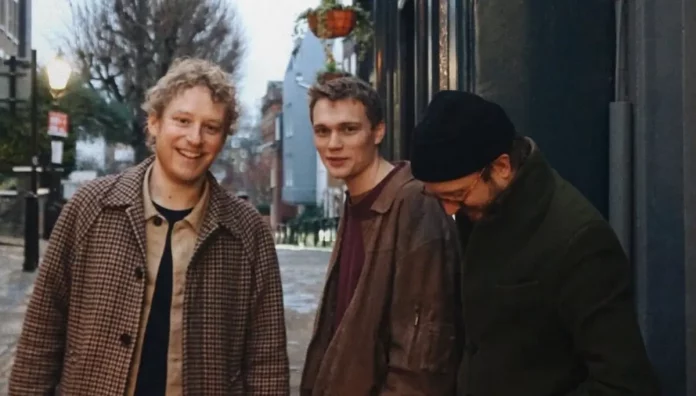As an admirer of Django Reinhardt, guitarist Dave Archer will understand his forebear’s argument that when soloing in the Quintette du Hot Club de France he was backed by two guitars and bass but when violinist Stephane Grappelli was taking a solo the backing was augmented by Django himself. The point was made to emphasise what a powerful rhythm guitarist Django could be as well as a soloist whose strength could not be diminished by a reduction in the number of those chugging rhythmically behind him.
Transfer this scenario in theory at least to Webb City, the piano-guitar-bass trio which includes Archer and is nominally led by London-domiciled Welsh pianist Joe Webb, and a similar notion can be applied, though not in Django’s sense of a clash of musical personalities. There’s a further comparison to be made: that both Django’s quintet (all strings) and the ebullient Webb’s trio have their origins in the swing era and its survival alongside modern and post-modern jazz.
Stasis is anathema to jazz almost by definition. It’s a music of probing inventiveness and thus always pushing against borders, at significant moments in its history crashing through them to make the music new. But without tradition and the vital work of keeping it alive – and “live” – the new would flounder. These thoughts occurred while Webb City brought the shades of Art Tatum, Oscar Peterson and like-minded musicians to life, and by extension the swing tradition in which they had their origins. It’s a style that in an admittedly reduced number of practitioners survived the post-war modernist maelstrom. In terms of worldwide concert audience appeal, if not in revolutionary ways of playing the music, Peterson outranked Charlie Parker and his immediate heirs.
Webb and Archer have been members of the house band at Giacomo Smith’s renowned London venue Kansas Smitty’s, with bassist Will Sach joining the two as Webb City on a 15-date tour exploring the music of Tatum. The inspiration was Tatum’s 1944 Trio album with Tiny Grimes and Slam Stewart, though there was none of Stewart’s bowing and humming in unison from Sach at Abergavenny. Webb City is a trio of equals, with Sach playing more than a conventional role in the ensemble, especially in the Duke Ellington-Jimmy Blanton chart Pitter Panther Patter, illustrating how Blanton’s workaday bass, elevated above the throng, sprouted a personality of its own. As a pianist in the Tatum manner but not enslaved by it, Webb was left alone at the end for a solo performance of Ar Hyd Y Nos, the Welsh song whose two verses have a middle section and whose strophic form allowed him to create a masterly set of variations, complete with Tatumesque skedaddling up and down the keyboard.
Tatum’s florid ornamentation is not for everyone, especially when it seems to be over-larding a basic stride style. Webb was aware of that, punching out tunes of which complex figurations were part and parcel and not mere decoration, and sharing leadership with Archer’s commanding but astringent guitar in modes both airborne (Honeysuckle Rose, Flying Home, Peterson’s Noreen’s Nocturne) and tender (A Flower Is A Lovesome Thing, and How Am I To Know, the latter memorable for Webb’s rain-dropped chords and tasteful filigree). Songs associated with Billie Holiday included I Cover The Waterfront, in which the head was announced by guitar and reprised at the end by the bass, a clever presentation on a night when the freshness and exuberance of improvisation was enshrined in robust and stable arrangements. A night too, when a full house welcomed the resumption of BMJ’s monthly live programme; though for two years it has recorded musicians “live” (paying them full fees) and streamed the results. This gig also was streamed.
Webb City (aka the Joe Webb Trio) at Black Mountain Jazz, Abergavenny, on Wednesday, 20 April 2022
















